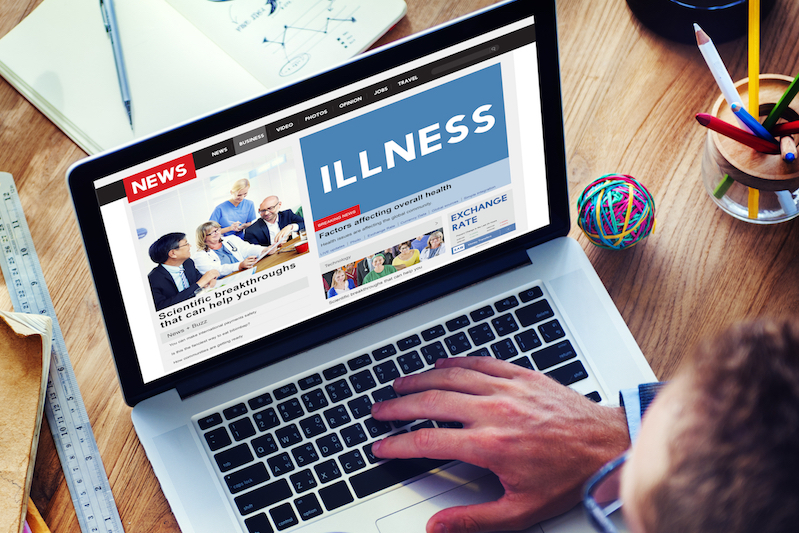“Chocolate can make you lose weight”, “Vaccines cause autism”, “Cholesterol tablets cause dementia”, “Strengthen your bones with calcium tablets”.
Do you know which of these headlines are true? Any of them, none of them, or maybe all of them? There is a massive amount of nonsense on the internet. Sometimes it’s easy to see when something is completely false but truth is often stranger than fiction, and a lie, well told, can fool even the wise. When it comes to health, these myths cost lives.
So, before you ‘like’, ‘re-post’ or act on any health news you come across on the web, test it against these 3 questions. (Or, just get hold of one of our Doctors, and ask us. Easy!)
1. Can the source be trusted?
Would you let your mechanic remove your child’s appendix? Obviously not: he wasn’t trained for it. In the same way, you wouldn’t trust your surgeon to fix your car: he was trained to operate on people, not engines.
Strangely, though, many of us would trust the opinions of unqualified strangers on the internet, when it comes to our health. A few pointers, then:
- Just because the person or website has many followers, doesn’t mean they can be trusted.
- Always check the credentials and qualifications of the people making the claim. Trust the heart surgeon with heart conditions, and the dermatologist with skin conditions. Do not trust fashion magazines with health-advice.
2. Does it sound too good to be true?
Then it probably is. Even though medicine moves forward, and we constantly discover new things, some of the good old advice will not change: eat your veggies, cut down excess, do exercise – this won’t change.
Yes, we all want to believe that we can do as we please, without consequence. But we all know it’s not true. So, when a headline says: “Eat chocolate and lose weight!” you need to be suspicious; You need to double and triple-check the facts, to make sure the facts line up. And don’t believe it simply because you read it in 3 or 4 magazines: they get it wrong too.
There was an interesting case, where the journalist, Johannes Bohannon, fooled millions of people in believing that chocolate can help you lose weight.
He did it to highlight just how untrustworthy the internet can be: and that it’s easy for something to “look okay”, if you don’t ask the difficult questions. Just because it says “Studies show” or “science says”, doesn’t make it true. Which brings us to our next point:
3. What does the original research say?
Very often, news and magazine articles distort or misinterpret the findings of research, so that it sells better. For example: it sounds a lot more provocative to say: “The Pill causes strokes”, than “Combined Oral Contraceptive can increase risk for blood clots.” If you only read the headline, you could miss very important information.
So, how do you know that the study is scientific and accurate? This can be a complicated process, but look out for the following:
- Bigger number = better accuracy. If the study was done on less than 30 people, be cautious in trusting the results.
- Was there a control group? If you don’t have a control group to measure your results against, you can say almost anything about your findings.
- Was it a double blind study? In these situations, the researchers don’t know who is tested until after the testing. This increases the accuracy of the results.
What to do if the health news looks fishy?
Quite simply, send the link to one of our Doctors, or just drop us a message. It’s our job to know the difference between science and nonsense. Don’t risk your health – and even your life – with fake news. Rather, go to sources you can trust.

